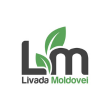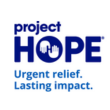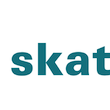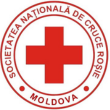Organizații vizate:
Achiziții de bunuri și contractări de servicii
- Detalii
- Categorie: Achiziție bunuri, Contractare Servicii
Extended: UNICEF Moldova LRPS-2023-9187728 National Institutional consultancy for Conducting a study on Infant and Young Child Feeding (IYCF) knowledge and practices in Moldova
Informațiile prezentate în articolul de mai jos pot să nu mai fie actuale sau să nu mai reflecte activitățile și programele curente. Anunțul este păstrat în arhivă pentru a asigura transparența și accesul public la informațiile despre inițiativele și proiectele implementate anterior.
Extended: UNICEF Moldova invites interested companies to submit their proposals for a National Institutional consultancy for Conducting a study on Infant and Young Child Feeding (IYCF) knowledge and practices in the Republic of Moldova
Purpose of the institutional consultancy
The purpose of this consultancy is to assist UNICEF Moldova in conducting a nationally representative study aimed at acquiring credible data pertaining to parents/caregivers’ knowledge and practices in the field of IYCF. Additionally, the study aims to furnish compelling evidence for decision-makers, aid in policy planning and monitoring of IYCF trends with the emphasis on identifying knowledge and policy gaps prevalent in the country. Furthermore, the findings will play a pivotal role in enhancing UNICEF's advocacy endeavors, fostering awareness, and underscoring the importance and benefits of sound IYCF practices.
The focus of this analysis is to get an overview of the current state/trends in terms of IYCF knowledge and practices. A mixed-methods approach is sought, including a desk review of existing materials and informant interviews and questionnaires with the parents/caregivers of children under 2 years old.
Objectives of the consultancy
- To collect national representative data (except the left bank of the Nistru River) on IYCF, the target being parents/mothers/caregivers of children under 2 y.o.
- To get an overview of the current state/trends in terms of IYCF knowledge and practices.
- To provide solid evidence for decision-makers, policy planning, and monitoring in IYCF with the focus on knowledge and policy gaps that exist in the country.
Details of how the work should be delivered
To achieve the above-mentioned objectives, the selected institution/company, in close collaboration with UNICEF will develop a study protocol. The study protocol will include detailed description of the following:
- Sample design, including sampling procedures and detailed description of how the sample is calculated to ensure a reasonable degree of precision at the national level (with the margins of error within 5 percent)
- Study tools and data collection methods. The study questionnaire should consider the questionnaire for the main caregiver (usually the mother) used in 2018 to ensure comparability of data, as well as standardized MICS modules (http://mics.unicef.org/) focused on IYCF. In addition, the 2021 WHO & UNICEF IYCF practices will be used, as well as other adjustments based on the agreement with UNICEF.
- Study steps and resources needed (human, transportation, translation, printing services etc.) with breakdown of all activities starting from preparatory phase to the final one - dissemination of survey results. The steps should also include organization of training and pre-testing of questionnaires
- Detailed workplan and Timeline to implement all activities as described above.
The IYCF knowledge and practices study should answer the following questions:
- What is the current level of parents/caregivers’ knowledge in terms of IYCF;
- What are the current practices of parents/caregivers in terms of IYCF.
The study should consider the following key domains and variables:
- Demographic characteristics of the households and individuals/ (household members), including children, i.e. age, gender, education, occupational status, etc.
- Nutrition knowledge and practices among parents/mothers/caregivers of children under 2 y.o. (breastfeeding and complementary feeding practices).
Qualifications and experience
- Minimum of 5 years of demonstrated experience in quantitative research, data analysis and reporting, and experience in undertaking surveys, namely knowledge and practices surveys and studies;
- Strong analytical skills and proven track record in developing of structured and well-written reports (at least 2 examples need to be enclosed);
- Good knowledge of IYCF work and approaches in programming used by UNICEF and previous work with UNICEF or other UN agencies is an asset.
Content of technical proposal
The Technical Proposal should include the following key elements:
- Corporate Profile (team profile) highlighting the bidders’ qualifications and experience in implementing the assignment, please include details of specific experience with similar assignments in the past five years
- Detailed understanding of UNICEF’s requirements for this assignment and bidders value proposition
- Detailed Methodology/approach to IYCF study demonstrating how you meet UNICEF requirements for this assignment
- Proposed timeline and milestones
- The Ethical consideration section, reflecting special measures will be put in place to ensure that the survey process is conducted in accordance with UNICEF’s ethical procedures.
Bidders are requested to back up their submissions by providing:
- Evidence in the form of job completion certificate, contracts.
- References to similar exercises (surveys, studies) containing the following information:
Name of the client
Title of the survey / study
Year
Scope of the study / survey
CVs of team members relevant for this assignment and their specific roles in respective survey/study
Period of implementation (start and end dates)
References and/or contact person details
- Details of the proposed Survey Team and key personnel for the assignment including the following information:
Title and responsibilities of each Survey Team member
CVs, reflecting educational qualifications and professional experiences
Experience in working on similar surveys and assignment (list all relevant projects they worked on and their roles on those surveys/studies
Financial Proposal
The financial proposal shall indicate total budget estimated in USD, as well as a detailed breakdown of budget items covering all survey stages, including preparatory stage, development of survey tools and methodology, sampling, training of interviewers, field work (pre-test and data collection), data processing and analysis, report writing, validation meeting and dissemination of the results. It will also cover translation, printing costs as well as other relevant expenses.
Submission instructions:
- Bid Submission Deadline: 24 January 2024 11:00 (EET/Moldova time), please note any Bids received after the Submission Deadline will be invalidated.
- Bid clarifications. Proposers are required to submit any questions in respect of this RFPS by e-mail to Cristina Dorogan at cdorogan@unicef.org. The deadline for receipt of any questions is 22 January 2024, 17:00 (EET/Moldova time). The Q&A document can be accessed here: QA RFP 9187728
- The only official tender e-mail address for proposals submission is: chisinautenders@unicef.org, no other UNICEF e-mails must be cc-ed.
- Proposals sent in 2 separate e-mails: one e-mail with Technical Proposal and another separate e-mail with the Financial Proposal.
- No price information should be contained in the Technical Proposal.
- Request for Proposals for Services Form (pages 3-5 of the LRPS-2023-9187728 document) must be filled and signed and included in the Technical Proposal e-mail/envelope.
- Please pay attention: by answering YES to the Declaration statements (included in the Request for Proposals for Services Form) it means you didn't participate in the listed actions, by answering NO it means you did participate in the listed actions.
- All Technical/ Financial Proposals files included in the email, no external links.
- Proposals clearly marked with the RFPS number: LRPS-2023-9187728 in the e-mail title or on the envelope.
- Validity period of the proposal - not less than 120 days.
- Joint venture/consortium/subcontractor arrangements are addressed in the Technical Proposal.
- Currency of the proposal- USD.
For additional details on the proposal submission rules please refer to the point 1. Proposal Submission Schedule page 7-9 from the RFPS document. For additional details on deliverables, technical and price proposal content and minimum requirements please refer to the Terms of References-Annex B enclosed in the RFPS document. The RFPS document is published on the following link.
- Policy Officer, Short-Term (NPSA-9), Capacity Building for Climate Action Project - UNDP Moldova
- People in Need is hiring a Civil Society Lead (Programme co-Manager)
- OEAPM-REOI-National Consultant to conduct a Training Needs Assessment for the State Hydrometeorological Service (SHS), to complete a gap analysis between the current education, training and competency levels of SHS staff members and the relevant WMO stand
- Request for Expressions of Interest - Civil Works Engineer within PIU EQIP NORLD
- BNM angajează Economist principal responsabil de raportarea financiară
Achiziții și Contractări pe Telegram
Nu pierdeți niciun anunț de achiziție bunuri/contractare servici postat pe site! Urmăriți Canalul dedicat pe Telegram:
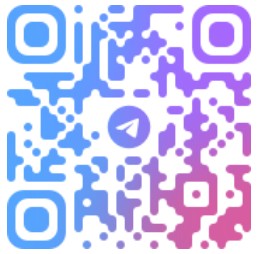
Top organizatii
2025 CIVIC DIGITAL SOLUTIONS
Email: support@portal.civic.md



